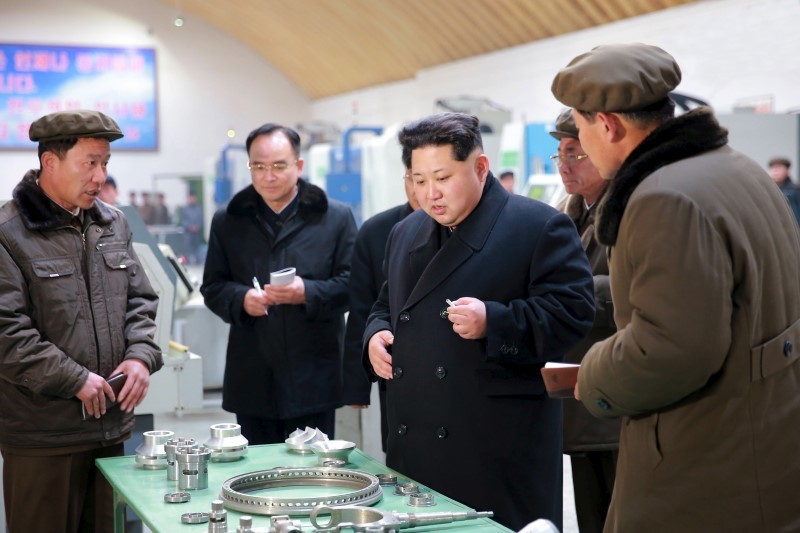
GENEVA (Reuters) – The United Nations human rights investigator for North Korea called on Monday for leader Kim Jong Un and senior officials in the country to be prosecuted for committing crimes against humanity.
Marzuki Darusman told the U.N. Human Rights Council that North Korea is devoting huge resources to developing nuclear and other weapons of mass destruction while many of its citizens lack sufficient food and others work in “slave-like conditions”.
“We are now at a crucial stage, therefore there is a fundamental need for countries to make that next step in ensuring accountability is undertaken,” he said.
The delegation of the Democratic People’s Republic of Korea (DPRK) boycotted the session. The European Union, United States and Japan supported Darusman’s call for accountability, although they did not refer to Kim by name.
Ambassador Robert King, U.S. envoy on North Korea, denounced the “egregious human rights violations committed by the DPRK” and said that the United States would work with other countries to “seek ways to advance accountability for those most responsible”.
China, Pyongyang’s ally, took a more conciliatory tone, saying human rights issues should not be politicized and calling for a comprehensive approach to dealing with North Korea.
China also rejected Darusman’s findings that North Koreans who flee across the border to China were being forced back to their homeland illegally.
North Korea Foreign Minister Ri Su Yong, in a speech to the Geneva forum on March 1, said it would boycott any session that examined its record and would “never, ever” be bound by any such resolutions.
Darusman, referring to a report he issued last month, said: “I would like to reiterate my appeal to the international community to move forward to ensure accountability of the senior leadership of the Democratic People’s Republic of Korea, including that of Mr. Kim Jong Un.”
This could be via the International Criminal Court (ICC) but failing consensus among major powers, North Korea’s leadership could be prosecuted in a third country, he said.
He called for the Council to set up a panel of three experts to look into “structure and methods of accountability”.
Political prison camps, torture, “slave-like labor” and religious persecution remain features of the state apparatus, two years after a landmark U.N. investigation into crimes against humanity, Darusman said.
North Korea conducted its fourth nuclear test in January and launched a long-range missile the following month.
“The denial of human rights to its citizens internally and this aggressive behavior externally are basically two sides of the same coin. The country is pouring a large amount of resources into developing weapons of mass destruction, while large parts of its population continue to suffer from food insecurity,” Darusman said.
John Fisher of Human Rights Watch said that North Korea had “horrific” forced labor camps, public executions and a history of mass malnutrition and even “mass starvation”.
“Generations of North Koreans have suffered at the hands of the Kim family and its elite,” Fisher said.
(Reporting by Stephanie Nebehay; Editing by Jermey Gaunt)










